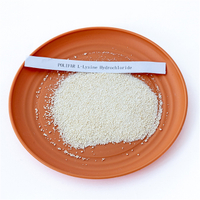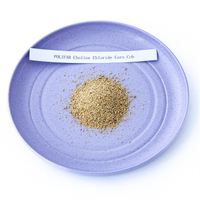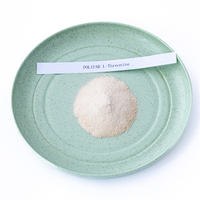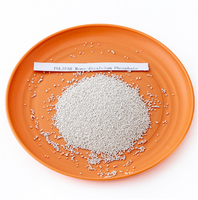Views: 0 Author: Site Editor Publish Time: 2024-06-21 Origin: Site









Food additives play a crucial role in modern food production, ensuring quality, taste, and safety. One such additive is Trisodium Phosphate (TSP). This essential guide will delve into the characteristics, applications, benefits, and safety regulations of TSP, providing food manufacturers with comprehensive knowledge about this versatile compound.
Trisodium Phosphate (TSP) is an inorganic compound with the chemical formula Na3PO4. It usually exists in the form of white crystalline powder, which is easily soluble in water to form a strong alkaline solution. TSP is widely used in the food industry due to its unique physical and chemical properties, mainly as a pH regulator, emulsifier and preservative.
Trisodium Phosphate (TSP) is a versatile food additive with multiple applications in the food industry. Its unique chemical properties make it an essential component in various food processing and preservation techniques. Here are some key applications of TSP in the food industry:
1. pH Regulator: TSP is commonly used to adjust and stabilize the pH levels of food products. By modifying the acidity or alkalinity, TSP helps maintain the desired taste, texture, and stability of food items. This is particularly important in products like dairy and baked goods.
2. Emulsifier: As an emulsifying agent, TSP aids in the blending of ingredients that typically do not mix well, such as oil and water. This property is crucial in the production of sauces, dressings, and processed cheese, ensuring a smooth and consistent texture.
3. Preservative: TSP acts as a preservative by inhibiting the growth of bacteria and other microorganisms. This helps extend the shelf life of various food products, reducing spoilage and waste. It is commonly used in processed meats, seafood, and canned foods.
4. Water Retention Agent: In meat and poultry processing, TSP is used to improve water retention, which enhances the juiciness and tenderness of the final product. This application is particularly beneficial in maintaining the quality of frozen and cooked meats.
5. Baking Aid: In the baking industry, TSP is used to enhance the leavening process. It helps in the even distribution of leavening agents, resulting in better volume and texture in baked goods like bread, cakes, and cookies.
6. Color Stabilizer: TSP is used to stabilize and enhance the color of food products, particularly in vegetables and fruits that are canned or frozen. It helps maintain a vibrant and appealing appearance.
7. Metal Ion Chelator: TSP has the ability to chelate metal ions, which can prevent discoloration and off-flavors caused by metal contamination. This property is particularly useful in the production of beverages and dairy products.
By leveraging these applications, TSP plays a vital role in ensuring the quality, safety, and appeal of a wide range of food products.
Trisodium Phosphate offers several benefits that make it a valuable additive in the food industry. Here are the key advantages:
Enhances Food Quality: TSP improves the taste, texture, and overall quality of various food products. It helps achieve the desired consistency and flavor, particularly in processed foods.
Extends Shelf Life: As a preservative, TSP inhibits the growth of bacteria and other microorganisms, effectively extending the shelf life of food products. This is crucial for reducing spoilage and waste, especially in perishable items like meats and seafood.
Improves Water Retention: TSP enhances the water retention properties of meat and poultry, resulting in juicier and more tender products. This benefit is particularly important for frozen and cooked meats, ensuring they remain moist and flavorful.
Aids in pH Regulation: TSP acts as an effective pH regulator, maintaining the desired acidity or alkalinity of food products. This helps ensure the stability, taste, and texture of items like dairy products and baked goods.
Supports Emulsification: TSP's emulsifying properties help blend ingredients that typically do not mix well, such as oil and water. This is essential for achieving smooth and consistent textures in sauces, dressings, and processed cheese.
Enhances Color and Appearance: TSP stabilizes and enhances the color of food products, preventing discoloration during processing and storage. This is especially beneficial for canned and frozen vegetables and fruits, ensuring they remain visually appealing.
Prevents Metal Ion Contamination: TSP chelates metal ions, preventing discoloration and off-flavors caused by metal contamination. This is particularly useful in beverages and dairy products, where purity and flavor are critical.
Cost-Effective: TSP is an economical choice for food manufacturers. Its multifunctional properties reduce the need for multiple additives, simplifying the production process and lowering costs.
Overall, TSP's multifaceted benefits make it a valuable ingredient in the food industry, helping manufacturers produce high-quality, safe, and appealing food products efficiently.
While Trisodium Phosphate (TSP) is beneficial in food processing, it has several drawbacks and controversies. Excessive intake can lead to phosphorus imbalance, affecting kidney function and bone health, and potentially linking to cardiovascular issues. High levels of TSP can cause gastrointestinal discomfort, including stomach pain and nausea, and interfere with calcium absorption, impacting bone health. Regulatory concerns exist despite FDA and EFSA deeming it safe within limits, as debates continue about these limits. Consumer perception is also a challenge, as many prefer natural additives over chemical ones. Additionally, TSP production and disposal can contribute to environmental issues, like water pollution and algal blooms, affecting aquatic ecosystems.
Trisodium Phosphate (TSP) is considered safe for use in food processing when used within regulated limits. Here's a summary of the safety considerations and regulatory guidelines:
1. Regulatory Approvals: FDA (U.S. Food and Drug Administration): The FDA lists TSP as generally recognized as safe (GRAS) when used in accordance with good manufacturing practices.
EFSA (European Food Safety Authority): The EFSA has evaluated TSP and deemed it safe for use in specified quantities in food products.
2. Safety Evaluations: Numerous scientific studies support the safety of TSP within regulated limits. These studies assess its impact on health, confirming that it does not pose significant risks when consumed in typical food amounts.
3. Usage Limits: Regulatory bodies set maximum allowable limits for TSP in various food products to ensure consumer safety. These limits are based on comprehensive risk assessments and are designed to prevent excessive intake.
4. Labeling Requirements: Food products containing TSP must comply with labeling regulations, providing transparency to consumers. Labels typically indicate the presence of TSP as an additive.
5. Consumer Guidance: While TSP is safe within regulated limits, consumers are advised to maintain a balanced diet and be aware of phosphate intake from multiple food sources to avoid potential health risks associated with excessive consumption.
By adhering to these regulations and guidelines, food manufacturers can safely incorporate TSP into their products, ensuring quality and consumer safety.
Trisodium Phosphate (TSP) has a variety of uses in the food industry, but there are alternatives that can provide similar functions. Here are some common TSP substitutes:
1. Citric Acid
Use: pH adjuster and acidulant
Advantages: Natural source, widely used in beverages, candies and sauces
Disadvantages: May not be as alkaline as TSP in some applications
2. Malic Acid
Use: pH adjuster and acidulant
Advantages: Provides a refreshing sour taste, often used in beverages and candies
Disadvantages: May be more expensive
3. Sodium Dihydrogen Phosphate
Use: pH adjuster, emulsifier and humectant
Advantages: Functions similar to TSP, but less strong
Disadvantages: May require higher dosage to achieve the same effect
4. Sodium Carbonate
Use: pH adjuster and leavening agent
Advantages: Commonly used in baked goods, low cost
Disadvantages: Strong alkalinity, need to be used with caution to avoid taste problems
5. Dicalcium Phosphate
Use: pH adjuster, calcium supplement and leavening agent
Advantages: Provides additional calcium, good for health
Disadvantages: Poor solubility, limited effectiveness in some applications
6. Sodium Lactate
Use: Humectant and pH adjuster
Advantages: Natural source, widely used in meat and dairy products
Disadvantages: May not be as effective as TSP in some applications
Each of these substitutes has its own advantages and disadvantages, and food manufacturers can choose the appropriate substitute based on specific product needs. When choosing a substitute, factors such as its function, cost, source and consumer acceptance should be considered to ensure the quality and safety of the final product.
TSP plays a significant role in the food industry, enhancing food quality, extending shelf life, and offering economic benefits. However, it is essential to use TSP safely to avoid health risks. As the food industry evolves, the usage trends of TSP and the choice of alternatives will continue to be important considerations.
Polifar is a leading supplier of high-quality food additives, including TSP. With a commitment to safety, quality, and customer satisfaction, Polifar provides reliable products that meet international standards. For more information on our products and services, visit Polifar's website.






